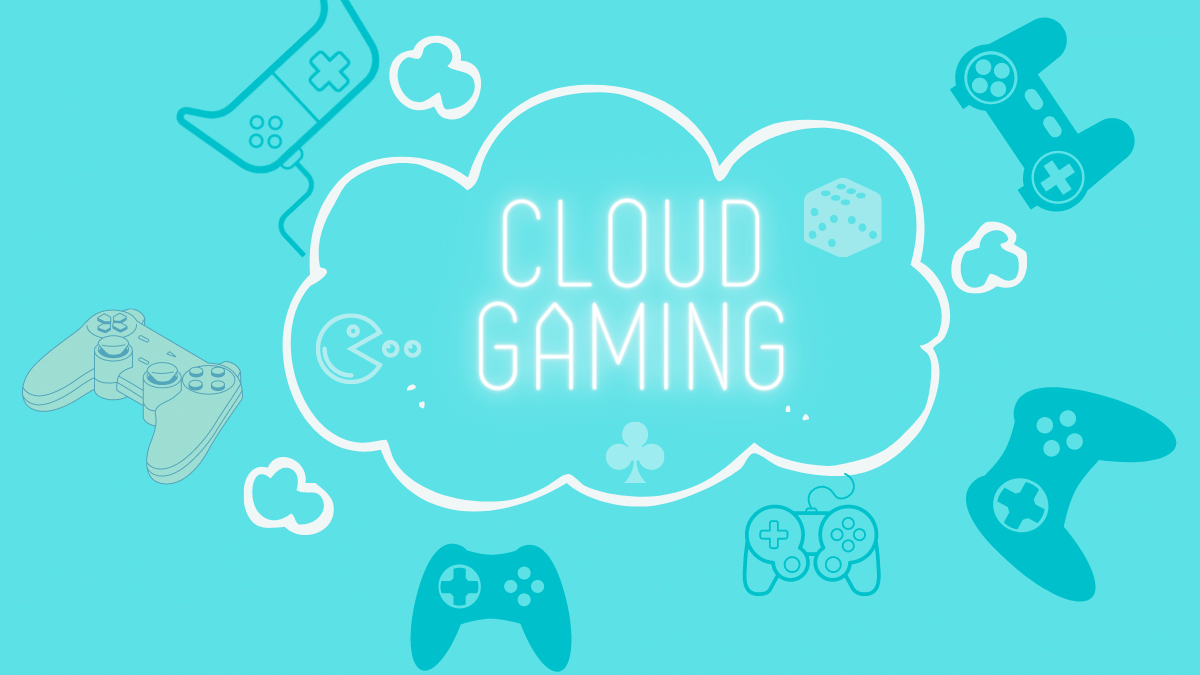“Cloud games refer to a game that resides on a corporate server and not on the player’s computer or device. The player enters the game by installing a client program that can access the server on which the players are playing, and games are running. “
Client programs that gamers install on their PCs are usually very lightweight and do not require much processing power to work with. Gamers can choose one of the available games on the client-side and play them on the server. The server provides the processing power of the game. The main advantage of cloud games is that the company can upgrade the game without worrying about the capabilities of the user’s computer.
Concept of Cloud Gaming
The “cloud gaming” concept is continuously evolving, especially in recent years. However, all the major console manufacturers are preparing to establish a concrete definition for this current idea. Essentially, cloud gaming will be the future of video game rentals (and maybe buying and owners).
Cloud gaming has a lot to do with streaming video. Essentially, the cloud game server is playing a game, and the video of the game is playing to you. Input actions from your keyboard, mouse, and controller are sent over the network to the cloud game server. The remote server does all the tedious work, but your computer only receives streaming video and audio and sends input commands. Basically, cloud gaming is like a streaming video service but interactive.
Some examples of cloud gaming are Valve’s Dota 2, TF2 (Team Fortress 2), CS: GO (Counter-Strike: Global Offensive). Steam is the client’s server here, and you can download the above game from the client to play on Value host servers.
Some Advantages of Cloud Gaming:
No Investment or Expensive Upgrade: Cloud gaming does not require updating your computer or console. Instead of buying expensive gaming equipment, just use your existing equipment.
Quick Play: Some games may require 10GB, 20GB, or more downloads before you can play. Cloud gaming will get you started playing the game right away since the server has the game already installed, and you can start playing it whenever you want.
Play Games on Any Operating System or Device: Cloud gaming allows games to be more platform-independent, allowing PCs and tablets to run Mac, Linux, Android, iOS, Chrome OS, and other operating systems to play games that only run on Windows.
Compressed Video: Just as the videos we see on YouTube or Netflix are compressed to reduce bandwidth usage, so are the “video” of gameplay you get from the cloud gaming service.
Scalability: Cloud gaming provides better scalability for the customer in RAM, CPU, and disk space as it has almost unlimited or unlimited resources. It shows that cloud hosting companies are outpacing growing business demands. Now, customers can easily handle different traffic types without latency or the inability to increase data storage capacity.
Stopping Piracy: Unlike traditional gaming systems, Cloud gaming apps are not available in the market; this helps prevent piracy.
Access to Multiple Games: Cloud computing technology offers online gamers many games to play and enjoy at the same time. Cloud-based gaming is a win-win situation for both gaming companies and game users.
Security: Cloud computing technology is the boon for the current situation to provide high-end security to online gaming. So when it comes to safety, I believe that Cloud gaming has it all covered.
Cloud Gaming Market Key Players
The competitive scorecard of this market analyzed in the report includes Samsung Electronics, Sony, Amazon, Microsoft Corporation, GameFly, Nvidia, Ubitius, Playkey, HaiHong Holding, TongFang, B Ray Medica, and Zhongqing Game.
Happy Gaming!




